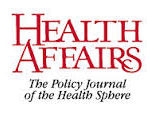State Uses DSRIP Innovation Funding to Improve Care for Urban Poor
New York Medicaid program is taking advantage of federal innovation money to explore new approaches to serving low-income urban Medicaid patients.
With the help of Delivery System Reform Incentive Payments (DSRIP), special Medicaid funding from the federal government, caregivers serving Medicaid patients are organizing into accountable care organizations (ACOs) in New York City.
 Under the experiment, doctors and hospitals join together to serve populations of Medicaid patients. While the doctors are currently paid on a fee-for-service basis, the program’s goal is to move them toward outcomes-based reimbursement, with bonuses paid to providers who achieve specific goals for improving the health of their patients.
Under the experiment, doctors and hospitals join together to serve populations of Medicaid patients. While the doctors are currently paid on a fee-for-service basis, the program’s goal is to move them toward outcomes-based reimbursement, with bonuses paid to providers who achieve specific goals for improving the health of their patients.
The state plans to spend $1 billion over the next five years on this aspect of its innovation program.
Learn more about how New York seeks to use DSRIP funding to improve the delivery of care to its Medicaid population in this New York Times report.








